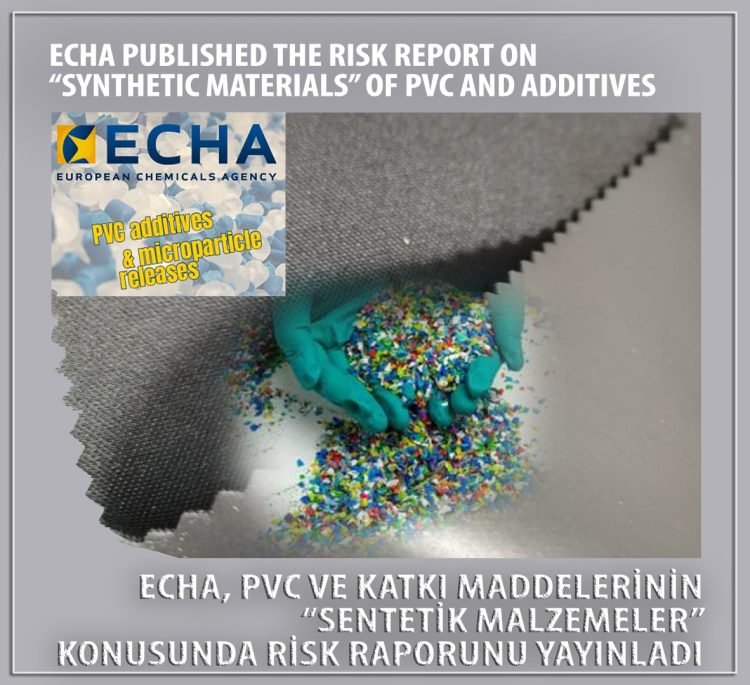The European Chemicals Agency’s ECHA, polyvinyl chloride PVC, used in “artificial leather”, has revealed that some substances added to plastic may pose risks to humans and the environment. He pointed out that regulatory sustainable solutions will be adopted to limit the use of these additives and minimize the release of PVC microparticles.
Within the scope of sustainability principles, upon the request of the European Commission, information was collected about the potential risks of PVC additives and PVC to human health and the environment. It also evaluated possible alternatives and evaluated the societal impacts of potential risk management measures and published the risk report.
The research focused on 63 PVC additives, including plasticizers, heat stabilizers and flame retardants. Key findings suggest regulatory action is required:
• Minimize the risks associated with plasticisers that are harmful to reproduction, in particular certain ortho-phthalates;
• Minimize risks from heat-stabilizing organotins such as DOTE, which can cause developmental malformations and reproductive harm;
• To reduce emissions of flame retardants as recommended in ECHA’s Regulatory Strategy on Flame Retardants; And
• To implement and develop technologies that minimize PVC microparticle emissions, especially in recycling facilities and waste landfills. The release of PVC microparticles contributes to plastic pollution. These microparticles also contain harmful additives and therefore minimizing their release will consequently reduce emissions of these additives.
• It is evaluated that the risks to employees and the environment from PVC resin are adequately controlled by the current working conditions and the company’s security measures. This conclusion came after analyzing the materials used to make PVC resin, the production process, waste disposal and exposure to PVC dust.
• ECHA’s investigation has now been sent to the European Commission. The Commission will consider the matter and decide whether it is necessary to formally ask ECHA to prepare a REACH restriction proposal.
Statement from non-governmental organizations
More than 60 non-governmental organizations made statements to the European Commission, welcoming the publication of the research report on PVC (polyvinyl chloride) and it; “Additives provided by the European Chemicals Agency (ECHA), The findings clearly demonstrate environmental and health harms caused by some substances added to PVC and the release of their microparticles.”
“We call for action on PVC as set out in the Roadmap of Restrictions under the Sustainability Chemical Strategy, and we quickly instruct ECHA to prepare an ambitious restriction under the REACH regulation as a first step to facilitate the complete phase-out of this material by 2030.”
The report also contributes to the United Nations program
ECHA’s research supports the European Commission in determining how to control PVC additives and potential risks from PVC. The study contributes to the objectives of the EU’s Plastics Strategy and the EU’s commitment to reduce plastic pollution under the United Nations Environment Program (UNEP).
https://echa.europa.eu/-/echa-identifies-risks-from-pvc-additives-and-microparticle-releases









